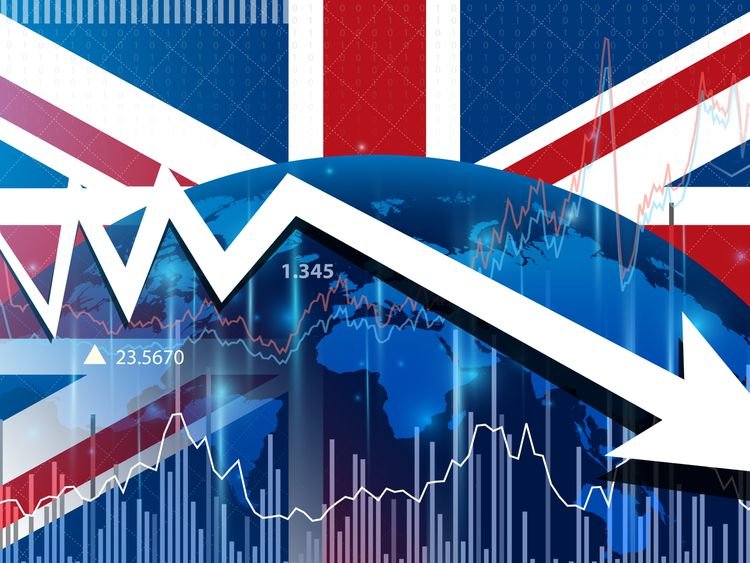LONDON: According to official numbers released, the U.K. economy entered a recession at the end of 2023 as a result of production declining more than expected in the last three months of the year.
According to estimates from the Office for National Statistics, the three major sectors of the economy—construction, industrial production, and services—all saw declines in economic activity during the fourth quarter of the year, with the GDP down by 0.3% from the previous three-month period. That was a lot more than the 0.1% drop that economists had predicted.
The quarterly drop underscores how the economy has been hampered by high interest rates that have been hiked to combat inflation, coming after a 0.1% loss in the preceding three months. Two consecutive quarters of economic downturn are required to legally identify a recession.
Since the coronavirus pandemic-related production collapse in the first half of 2020, this is the first time the British economy has entered a recession.
A general election is scheduled for this year; British Prime Minister Rishi Sunak will choose the date. The numbers give a setback to the ruling Conservative Party. Recession is not the best environment for a party that is significantly lagging behind the Labour Party, the primary opposition.

As inflation returns to the Bank of England’s objective of 2%, it is hoped that the bank will soon begin reducing interest rates. Right now, the rate of inflation is 4%.
Even though interest rates seem to have peaked, the central bank has warned against reducing them too quickly since doing so might encourage spending and drive up prices once again.
The Bank of England rapidly raised its main interest rate from near zero to 5.25% from late 2022 to August of last year, which helped to bring inflation down from a four-decade peak of more than 11%.









